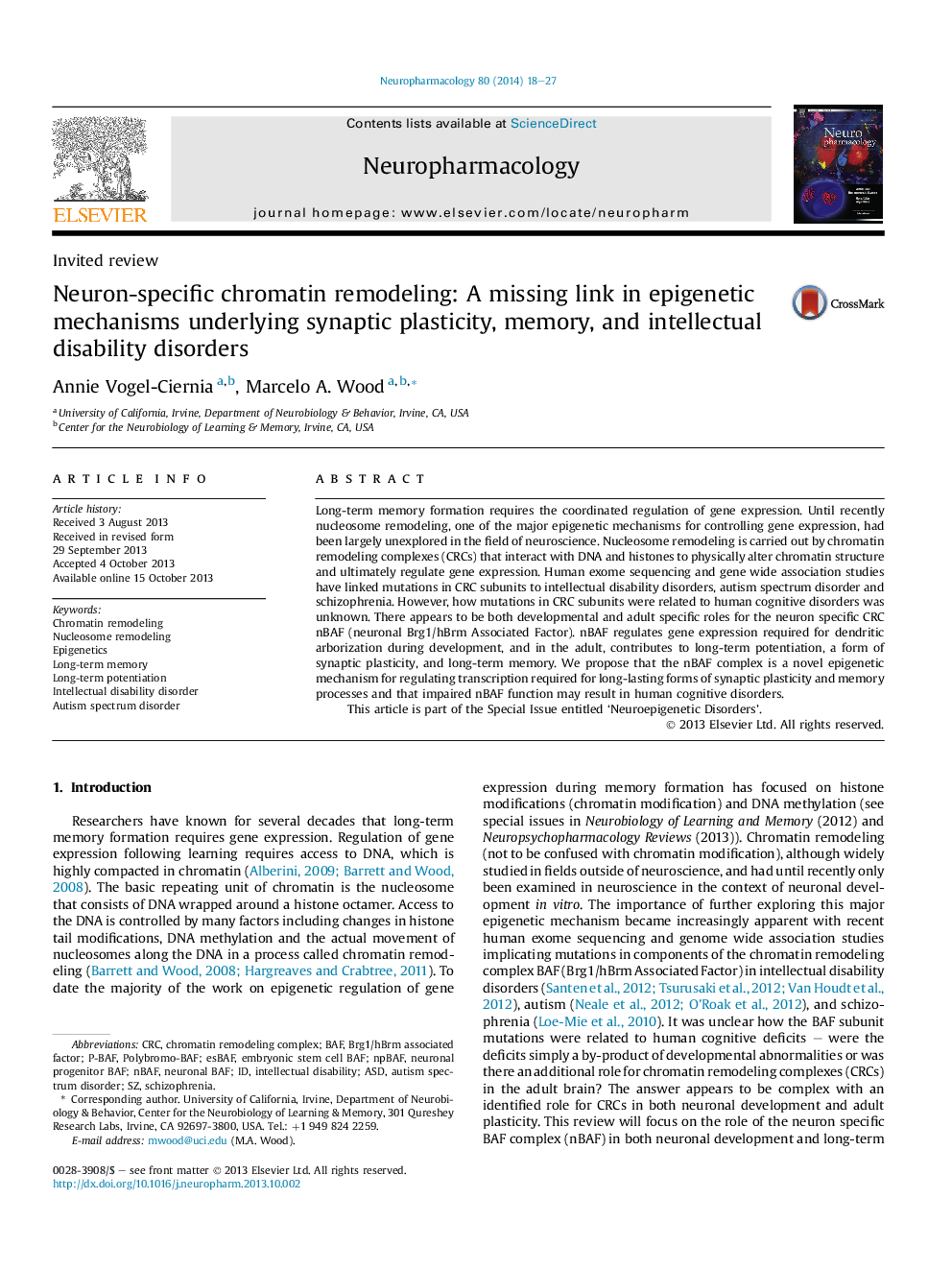| Article ID | Journal | Published Year | Pages | File Type |
|---|---|---|---|---|
| 2493212 | Neuropharmacology | 2014 | 10 Pages |
•Neurons contain a specific chromatin remodeling complex (nBAF).•nBAF is required for dendritic arborization and spine formation.•BAF53b is a critical neuron-specific subunit of nBAF.•BAF53b is required for long-term memory, long-term potentiation and gene expression in the adult.•Mutations in nBAF subunits are linked to intellectual disability, autism, and schizophrenia.
Long-term memory formation requires the coordinated regulation of gene expression. Until recently nucleosome remodeling, one of the major epigenetic mechanisms for controlling gene expression, had been largely unexplored in the field of neuroscience. Nucleosome remodeling is carried out by chromatin remodeling complexes (CRCs) that interact with DNA and histones to physically alter chromatin structure and ultimately regulate gene expression. Human exome sequencing and gene wide association studies have linked mutations in CRC subunits to intellectual disability disorders, autism spectrum disorder and schizophrenia. However, how mutations in CRC subunits were related to human cognitive disorders was unknown. There appears to be both developmental and adult specific roles for the neuron specific CRC nBAF (neuronal Brg1/hBrm Associated Factor). nBAF regulates gene expression required for dendritic arborization during development, and in the adult, contributes to long-term potentiation, a form of synaptic plasticity, and long-term memory. We propose that the nBAF complex is a novel epigenetic mechanism for regulating transcription required for long-lasting forms of synaptic plasticity and memory processes and that impaired nBAF function may result in human cognitive disorders.This article is part of the Special Issue entitled ‘Neuroepigenetic Disorders’.
